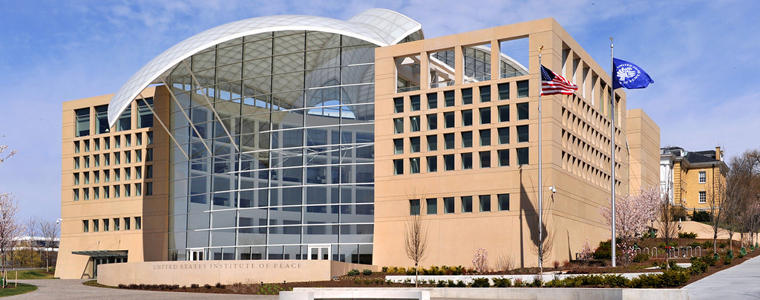Constitution Making in the Two Sudans
With ongoing violence and mounting tensions between them, both Sudan and the newly independent South Sudan face a defining task in the near future: writing new constitutions. Panelists in this event explored the state of constitutional development in each country and the role the constitution making processes can play in addressing on-going conflicts, and make recommendations for how the processes can reach their full potential.
Read the event coverage, USIP Supporting Development of New Constitutions in the Two Sudans

With ongoing violence and mounting tensions between them, both Sudan and the newly independent South Sudan face a defining task in the near future: writing new constitutions. Those documents, and the processes for creating them, can be unifying or divisive. The constitutional development processes have the potential to help heal old wounds and address longstanding questions concerning governance and identity. But there are lingering concerns in each country about how inclusive and transparent those processes will be. Panelists in this event explored the state of constitutional development in each country and the role the constitution making processes can play in addressing ongoing conflicts, and made recommendations for how the processes can reach their full potential.
Speakers
- Jason Gluck, Panelist
Senior Rule of Law Adviser, Rule of Law Center, U.S. Institute of Peace - Nureldin Satti, Panelist
Secretary General, Sudan National Library - Veronica Eragu, Panelist
Jennings Randolph Senior Fellow, U.S. Institute of Peace - Jon Temin, Moderator
Director, Sudan Program, U.S. Institute of Peace
Explore Further
- Constitution Making in the Two Sudans
Event News Feature - Eye on Sub-Saharan Africa
With its research, analysis and field work, USIP is on the ground in key African nations working to prevent conflicts from turning deadly and to build local capacity to stop disputes from escalating into violent conflict. - Why Sudan’s Popular Consultation Matters
Special Report by Jason Gluck - Toward a New Republic of Sudan
Special Report by Jon Temin and Theodore Murphy - Learning from Sudan’s 2011 Referendum
Special Report by Jon Temin and Lawerence Woocher



